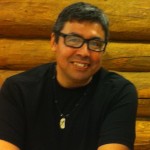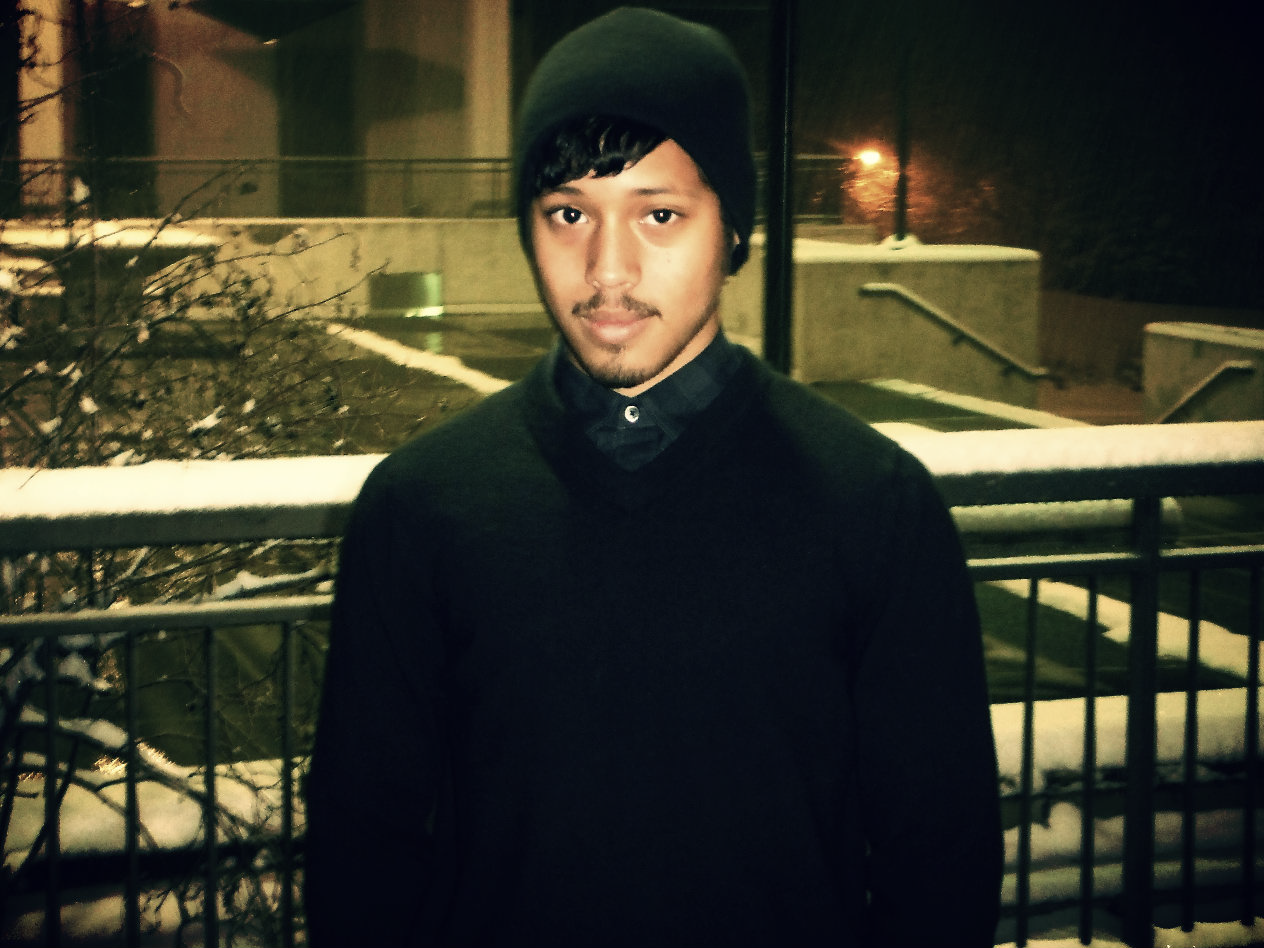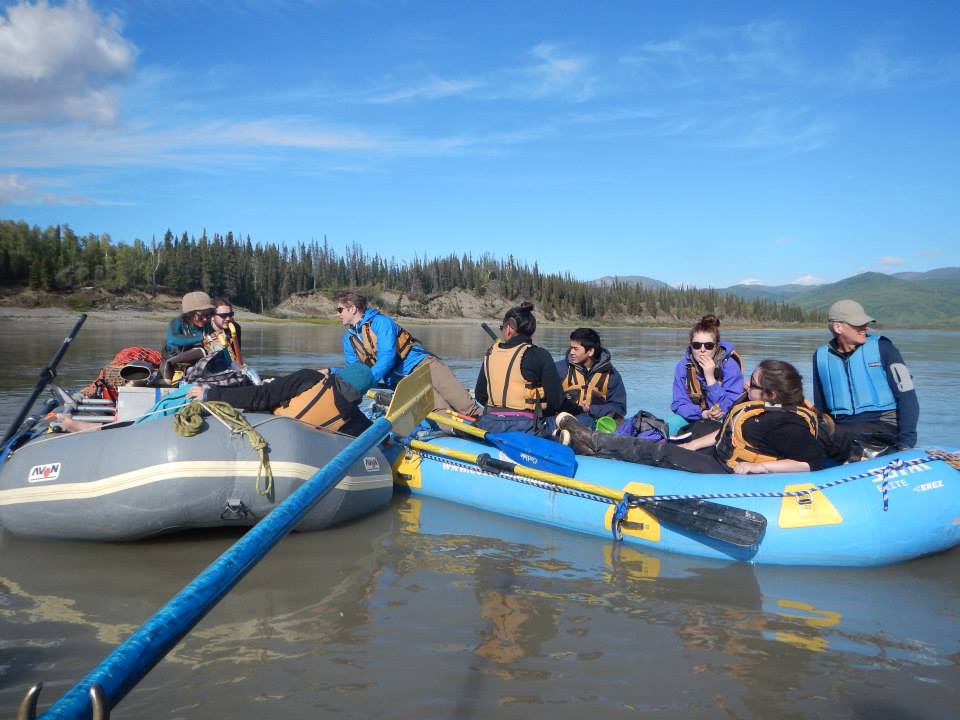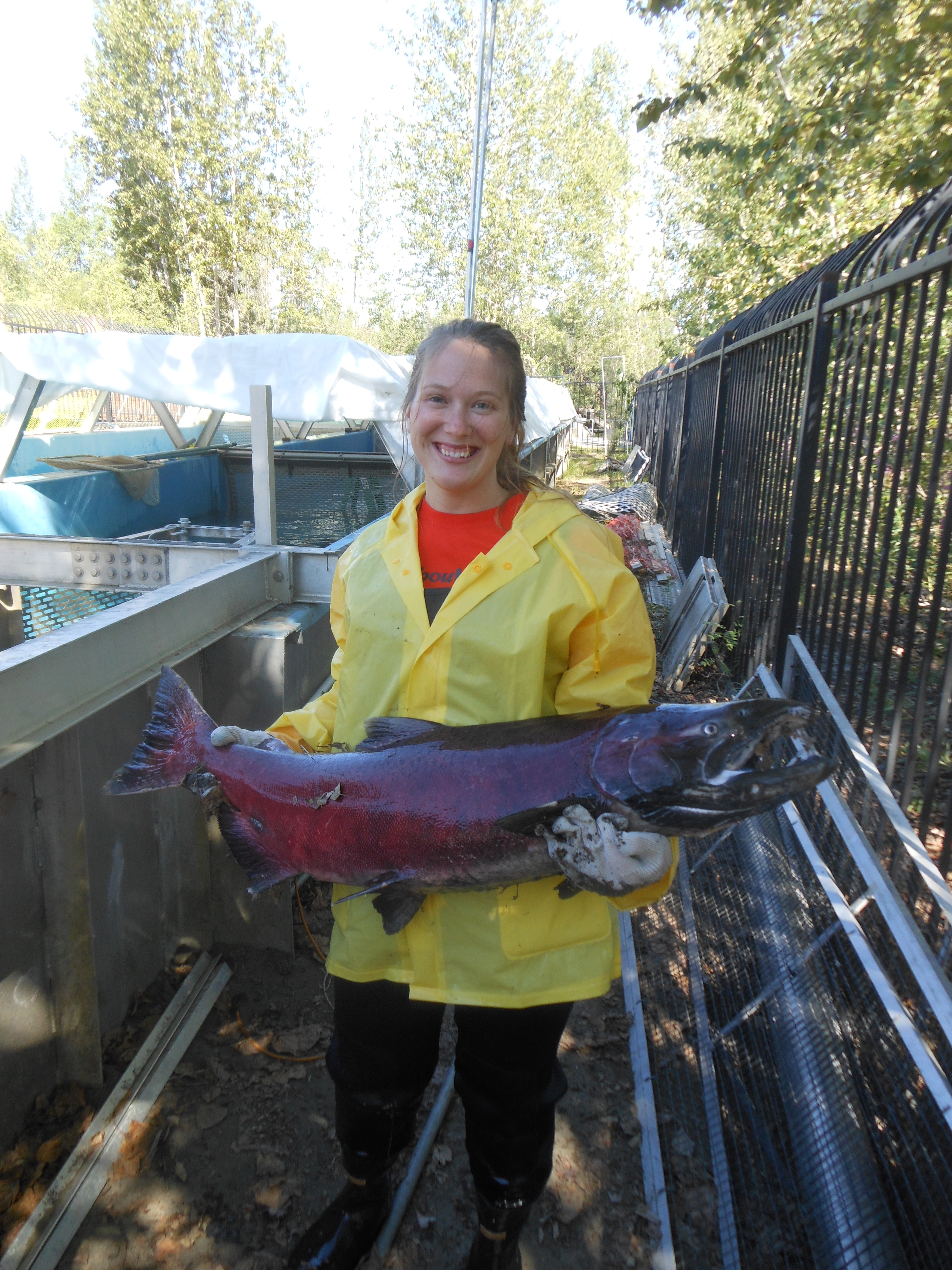by John Yakanak
Reflecting on the growth of the Anchorage Sugpiaq language group, my journey so far has proved to be challenging, exciting, trying, and filled with blessings; the experience tested my resolve and further built my character. The adventure began when I was asked if I would be willing to start a Sugpiaq-Alutiiq language program here in Anchorage. Seeing only some of the challenges ahead and moving forward on faith and determination rather than experience, I began making calls. With different organizations doing their part to initiate a program, the Anchorage Sugpiaq-Alutiiq language preparations came together. As an Alaska Pacific University student, I was fortunate enough to incorporate the program into an independent study with the Alaska Native Studies and Liberal Studies departments and hold gatherings on campus.
At this point, determination was the means of getting the program started. The biggest doubt in my mind was the fact that I’m not fluent and hadn’t done any development in the language with beginner learners. I do have a good working knowledge of the language, but there is much more that I don’t know. Self-doubt put aside, and I was focused on the fact that I’m willing to go through the process to help other interested learners. Having two Elders who were willing to attend and help with pronunciation and development of our vocabulary was a blessing for the group. Now the real journey began—to actually carry out all that was once a concept in my mind.
During the startup of the group, letting everyone know that we would be learning together proved to be helpful. The more that was brought out in the open, the smoother things went. Being able to relay some of what worked in my travels and struggles also helped, as did the hours spent planning, reciting, and practicing. The challenges have proved to be good learning experiences: successes or flops, we learned from our efforts. Fortunately, Elders pointed us in the right direction or gave the correct pronunciation when needed.
Most people who attend are just starting out. We began with material that could be easily digested, to give them a sense of accomplishment and build confidence. To help solidify the words and phrases, we reviewed what was gone over the week before, using vocabulary words, and introducing new words and tying them together in the different lessons. We used the “Where Are Your Keys?” WAYK technique (TQ’s) of learning, which worked well depending on the learner’s willingness to adapt to the physical association of using sign language packaged into “rides,” a series of action-based, word association learning systems (Garner, 2011). Though I didn’t find the technique very effective when I was first learning, now I see the benefits of this useful learning tool—the more it’s used, the easier it gets. Based on my experience, WAYK is a perfect example of the active learning model that has been used in my time spent studying at APU.
Sugpiaq-Alutiiq is an agglutinative language. Agglutinative languages are made up of root words (base) and numerous suffixes (post base) that add or change meaning. Each word particle has meaning but rarely can stand on its own as a separate word. In languages like Sugpiaq-Alutiiq, you can often have whole sentences that are just one long word. When you have a good working knowledge of the suffixes or post bases, you can break down each suffix or post base from the root word. This has helped me to learn and explain enough to teach another learner. Seeing the participants experience some of the same difficulties that I had made it easier to help them in the challenging sections of their learning. I have found learning Sugpiaq similar to learning algebra. In algebra, when you understand the equation well enough, you can teach it to another person.
Learning and growing together as time went on seems to have gone over well with the Elders and learners. One of the Elders, who has worked with the revitalization efforts since its infancy, often reminds us of how fast she thinks the group is moving forward.
Time management was an ongoing affair. Planning the right amount of material for the timeframe had successes and failures. I’ve learned to prepare too much material than is needed for each group. Some weeks, two hours is not enough, but when things aren’t going so well, it seems to be plenty of time. At times it was a welcome distraction to hear stories of when the Elders were children growing up in the different villages, stories colored with their thoughts and understandings of how their world worked at the time.
Over the past several weeks, our group has bonded together. We have been given a great name thanks to the Elders: “Kicarwigmi Sugpiaq-Alutiiq Yugneret.” Translated it means, “Sugpiaq-Alutiiq words in Anchorage.” Although we can all trace our roots to different villages in Kodiak, our paths have brought us together here in Anchorage, the biggest village in Alaska. We all came to the same agreement that we wanted to learn. Some of the Elders have said that coming to the weekly gatherings was a great learning experience. They heard words that they hadn’t heard in years and had forgotten.
The environment that we created was relaxed with a goal-oriented mentality. A growing of Elders have come to show their support in making the gathering a success. Through word of mouth and special visits to inform different Elders of what was being started here in Anchorage, we have brought the number of Elders up from two to as many as seven. This has turned into a great opportunity for a learner to receive paramount guidance in learning the language. We welcomed twenty-one attendees for the inaugural gathering for the group, and enjoy the participation of ten attendees per week, on average. Recently, we have been recognized in articles by the Kodiak Daily Mirror and the Anchorage Daily News, which have helped spread the word.
Surprise visits by Evan Gardener have advanced our language training. Evan is a linguist who developed the WAYK system of learning languages. This was a boost to my facilitating responsibilities; it came at a perfect time for me, as struggles with different instruction tactics the week prior had me feeling a little frustrated. His presence was welcomed and gave a needed boost in relaying his teaching method.
I realized early on that I needed to restructure my Sugpiaq instruction received in Kodiak. Seventy-five percent of my learning was on the computer, the other being the summer in Kodiak. I felt as if I didn’t have a solid base to pass on what I had learned. Ultimately, I needed to learn these words and terms the way the Elders expressed them. It was explained that some of what I had learned had not provided proper pronunciation or correct definitions. Fortunately, a majority of what I had learned was correct enough to carry on. Taking the correct path rather than a shorter, quicker path was the only option at this point.
After looking into this a little deeper, I found that in my studies there is a TQ called “mumble,” whose basis is “close enough is good enough for now.” The mumble TQ is used for bigger classes and beginner learners who are starting at square one. As a leaner makes progress and has a better understanding of the language, adjustments to pronunciation and accent are made. Being a smaller group of learners, and having a larger group of Elder instructors, we adopted the higher level of learning. I did a preview of what has been taught to me, then asked the Elders if there were any words or phrases that needed to be changed to make the lesson correct. This essentially set up the WAYK “ride,” the way Elders would say the phases, with correct suffixes or post-bases. On several occasions the post-bases would be left off to make the ride simple and easier to understand.
In our past adventures of learning we celebrated our accomplishments by raising our hands in the air and exclaiming, “Atagua!” three times, meaning, “It’s done right!” This relieved built-up tension. It is a well known TQ that is used often. I saw it as a sign of learning from our mistakes and the obvious celebration of overcoming hurdles that were in our path. With the minor setbacks behind us, we had a new sense of accomplishment; we had a goal to continue to move forward in the language. In the future, I hope to bring a learner or learners to the point of being able to facilitate some of the gatherings. This will build their confidence and fluency, essentially tutoring another new learner and bringing them along on their language path.
I am thankful to have witnessed the significant growth the group experienced; there is still plenty of work to be done. One of the Elders reminded me fairly often that I am on this path for a reason and God has a plan that is unknown to us. Having both spiritual and Elder support gave me the confidence to carry on. I also had my own aspiration to learn. Three generations in my family were brought up not speaking the Sugpiaq language: my father, myself, and my children—although my son and daughter have benefitted from three years of Sugpiaq-Alutiiq language lessons in high school and are most likely more advanced speakers than I am. They are an inspiration to me to continue to move forward. Speaking for myself and the group, we are a work in progress. I am thankful and happy to be on this path.
[divider]
 John Yakanak is a second year undergrad student at APU, studying psychology. John is in his second year of learning the Sugpiaq language. He was born in Kodiak and has lived in Cordova, Kodiak and now in Anchorage. John plans to go into the drug and alcohol recovery and prevention field after he is done with schooling.
John Yakanak is a second year undergrad student at APU, studying psychology. John is in his second year of learning the Sugpiaq language. He was born in Kodiak and has lived in Cordova, Kodiak and now in Anchorage. John plans to go into the drug and alcohol recovery and prevention field after he is done with schooling.
[divider]





3 Comments
sophie frets
John Yakanak is wonderful mentor and example of what a person can do,when faced with a challenge. It has been a great pleasure to watch him rise to each circumstance put before him. As I read of all he has accomplished, I can not help but get excited for what our Mighty God has for this fine, capable, humble, Man of God.
Anecia O'Carroll
John, My daughter and I so enjoy the spirit you bring to this meaningful endeavor of helping our beautiful language continue into the next generations. It means so much to have the opportunity to participate in helping bring forward the language of our grandmothers and grandfathers. Quyanasinaq Aapama John Yakanak
Rachel Dunbar
I am very impressed with how you overcame your self-doubt and created an opportunity for others to learn a language. It is also nice to know that working with APU to create something like this is possible. I am curious to know how you began speaking the language? You are a great writer and I hope to hear more about the progress of your group!